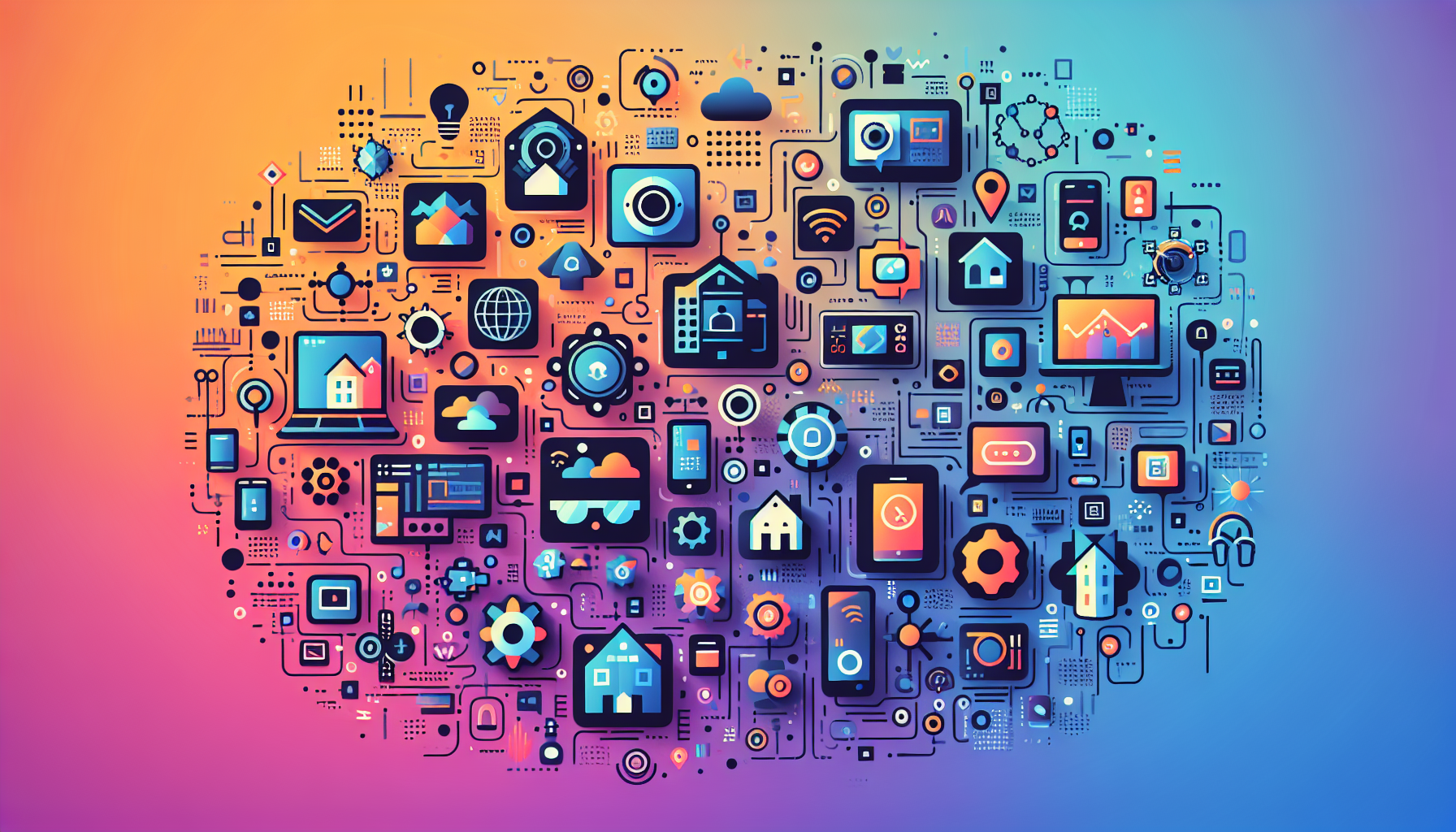Augmented Reality in Home Buying: 2025 Trends

As we step into 2025, the real estate industry is experiencing a profound shift, and one of the key drivers of this change is Augmented Reality (AR). This technology is not just a novelty; it's transforming how we interact with properties, from virtual property tours to interactive neighborhood explorations. Let's dive into the trends that are redefining home buying and explore how AR, along with other digital innovations, is making the process more immersive and personalized.
The Rise of AR in Real Estate
Virtual Property Tours and Staging
AR is revolutionizing the way properties are presented. Instead of static images, potential buyers can now use AR apps like IKEA Place to visualize how furniture and decor could look in a home. This interactive approach creates an emotional connection with properties, making it easier for buyers to imagine themselves living there. Virtual staging allows potential buyers to see a property’s full potential without the need for physical renovations, saving both time and resources.
Interactive Neighborhood Exploration
Beyond the property itself, AR can enhance the overall home-buying experience by providing interactive neighborhood explorations. Buyers can overlay digital information onto real-world environments, discovering local amenities, schools, and community features without leaving their screens. This feature is particularly useful for out-of-town or international buyers who need to feel connected to an area without physically visiting it.
How AR Enhances Home Buying
Personalized Property Experiences
Personalization is at the heart of AR’s impact on real estate. By analyzing user preferences, AR tools can offer tailored experiences that highlight specific features of a property. For instance, if a buyer is interested in sustainable living, AR can highlight energy-efficient features and nearby green spaces. This personalized approach ensures that buyers only see properties that align with their needs, streamlining the search process.
Enhanced Marketing Strategies
Real estate agents are leveraging AR to create engaging and memorable listings. By incorporating interactive elements, such as clickable hotspots that reveal detailed property information, AR listings retain buyers' attention longer and make properties more appealing. This strategic use of technology not only attracts more leads but also helps in converting them into sales by providing a deeper understanding of the property.
Real-World Applications and Case Studies
Smart Homes and Sustainability
In addition to AR, smart home technologies are becoming increasingly important in the real estate market. Buyers are looking for homes equipped with efficient systems that can save them both money and reduce their carbon footprint. For example, smart thermostats like those offered by Nest can learn and adapt to a home's temperature preferences, providing significant savings on energy bills. This focus on sustainability aligns with the broader trends in real estate, where buyers are seeking eco-friendly solutions.
Blockchain and Secure Transactions
While AR enhances the property experience, blockchain technology is securing the transaction process. By using smart contracts, the real estate industry can ensure transactions are transparent, tamper-proof, and faster. This combination of AR for enhanced property visualization and blockchain for secure transactions is setting a new standard for efficiency and trust in home buying.
Navigating the Future of Real Estate with Technology
Integrating AI and Virtual Reality
AI and Virtual Reality (VR) are also playing crucial roles in the transformation of real estate. AI-powered platforms offer personalized property recommendations based on users' preferences and market trends. Meanwhile, VR allows for immersive property tours, enabling buyers to explore homes remotely. This integration of AI, VR, and AR is redefining the home-buying journey, making it more efficient, personalized, and engaging.
Adapting to Market Trends with Data Insights
To navigate this evolving landscape, real estate professionals must stay informed about market trends and technological advancements. Tools powered by AI can analyze vast amounts of data to predict market fluctuations, providing actionable insights that help in making informed decisions. For those interested in leveraging technology for better property valuations and market analysis, platforms like Redfin offer comprehensive data-driven solutions.
Conclusion and Next Steps
As AR and other digital technologies continue to redefine the home-buying experience, it's clear that the future of real estate is more personalized, interactive, and efficient. To stay ahead in this evolving market, it's crucial to embrace these innovations. Whether you're a buyer looking for the perfect home or a real estate professional seeking to enhance client experiences, WP Ultimate Loan & Mortgage Calculator can be a valuable resource in understanding and navigating the financial aspects of home buying.
If you have questions about how technology is shaping your real estate journey or would like to explore more about the financial tools available, feel free to Contact Us for personalized advice. Embracing the future of real estate involves not just understanding AR and other technologies but also being proactive in leveraging them to succeed in the market. With the right tools and insights, you can make informed decisions that align with your goals and vision for the perfect home.
In the coming years, keeping up with these trends and learning how to integrate them seamlessly into your real estate strategy will be key to success. Whether it’s using AR for immersive property experiences or leveraging AI for personalized market insights, technology is redefining every step of the home-buying journey. For those interested in learning more about how technology is reshaping real estate, checking out resources like Zillow can provide valuable insights into the latest trends and innovations in the industry.











